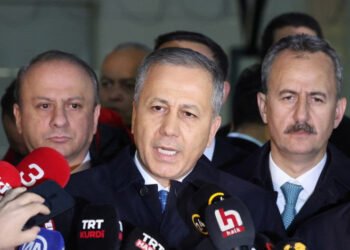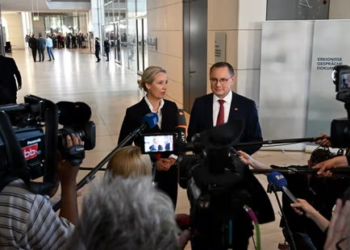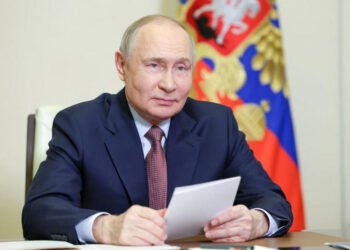Germany has taken a step closer to gas rationing after a drop in supplies from Russia.
Germany’s Economy Ministry noted that the country has triggered the “alarm” stage of an emergency gas plan to deal with shortages. It is the latest part of a standoff between the European Union and Russia over its invasion of Ukraine.
German Economy Minister, Robert Habeck, disclosed that Russia is using gas “as a weapon” in response to European Union’s sanctions. Mr. Habeck said “We must not fool ourselves. The cut in gas supplies is an economic attack on us by [Russian President Vladimir] Putin”, adding that Germans would have to reduce consumption. He added that there would “hopefully never” be a need to ration gas for German industry, but pointed out that “Of course, I can’t rule it out.”
Emergency plan
Germany has now moved to the second stage of its three-part emergency plan, which is triggered when there is a disruption or a very high demand for gas.
The government will provide about €15bn (£13bn) of loans to try to fill gas storage facilities and will start auctioning gas to industry to encourage big businesses to use less.
Moving to stage two of the plan puts more pressure on suppliers and network operators to balance out disruption by taking measures such as finding alternative sources for gas. However, the country stopped short of letting utilities pass on soaring costs to customers, although that is theoretically possible under stage two.
Gas firms already ensured supplies under the first stage of the emergency plan, while gas network operators reported to the Economy Ministry at least once a day, while electricity grid operators also ensured there is grid stability.
Plans Ahead of Stage Three
State intervention would happen under the third stage when there is a significant disruption to supply that the market cannot cope with, meaning supplies are rationed.
In the third stage, supply to industry would be restricted first, while households and critical institutions such as hospitals would continue to get available gas.
On Thursday, June 23, 2022, EU Climate Policy Chief, Frans Timmermans, said 12 European Union countries have now been affected by cuts to gas supply from Russia.
Already, as of last week, the supply to Nord Stream 1 pipeline has been reduced to 40% of capacity by Russia, citing problems with equipment, affecting countries including Germany. Nord Stream 1 is due to undergo maintenance from July 11 to July 21, 2022, when flows will stop.
The Head of the International Energy Agency, Fatih Birol, warned that Russia may cut off gas supplies to Europe entirely and that Europe needs to prepare now. Russia already cut gas supplies to Poland, Bulgaria, the Netherlands, Denmark and Finland over their refusal to comply with a new payment scheme.
‘All Bets are off’
Nathan Piper, Head of Oil and Gas Research at Investec, said the continuing restrictions on gas supplies from Russia to Europe is a “worrying development”.
“Effectively, all bets are off on what could happen next. Any pretence that Russia is a reliable provider of gas supplies has gone.”
In the summer, disrupted gas supplies are “less of a pressing concern”, but Piper said the situation could become worse in winter when people need more heating. Whether Germany has to start rationing gas “remains to be seen”, he said, but suggesting that if prices continue to rise, the industry will cut back anyway as gas becomes uneconomical.
READ ALSO: She has said the bitter truth – Shatta Wale defends TikTok Influencer, Asantewaa























